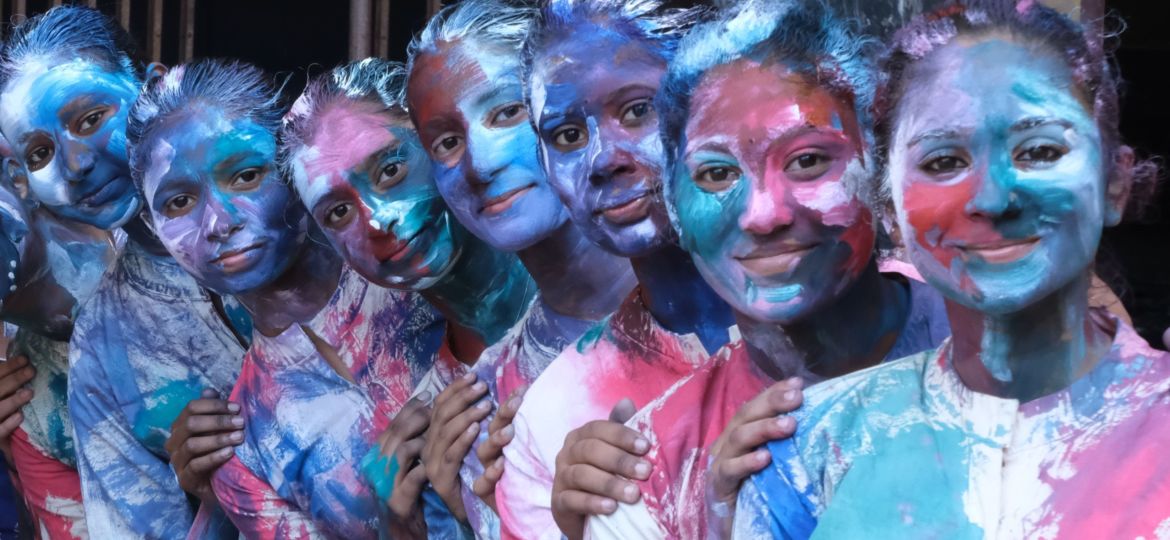National Youth Day and Azadi ka Amrit Mahotsav were celebrated on 12 January 2022 in a day-long programme.
The programme was conducted physically with the audience restricted to 50 persons (students, parents, and teachers) according to the local government restrictions following all Covid-19 protocols like wearing masks and maintaining social distancing. The programme was streamed live on YouTube and had thousands of viewers. The programme included prayer, recitation from Sanskrit poems on Swamiji, readings from and on Swamiji, retelling incidents from Swamiji’s life, speeches on Swamiji, songs on Swamiji, prize distribution to students who had won various competitions like speech, essay writing, drawing, held before 12 January 2022 on this occasion, Dressing like Swamiji, dramatic presentations of some poems on social issues, dramatic presentations of Swamiji’s teachings, felicitation of teachers and non-teaching staff retiring this year, felicitation of students who got high grades in the examinations in 2021, traditional dances like Kuchipudi, Thiruvathira, Garba, folk songs, folk dances, dramas, bhajans, and light music. The programme started at 10 a.m. and went on till 8.30 p.m. From 10 a.m. to 12.30 p.m. there were some cultural programmes. The public meeting started at 2.30 p.m. and went on till 5.00 p.m. Two sutradhars, a male and a female teacher, presented the entire programme with appropriate retellings from Swami Vivekananda’s life and teachings. A differently-abled student gave a speech and another differently-abled student sang a song. Lunch was served to 600 students, parents, and teachers following all Covid-19 protocols.
The speakers were Lieutenant Colonel Manoharan T (Retd), Pramod Aikkarapadi (A Teacher from another school, who is popular for his speeches on Swamiji), Rinsha (National Kabaddi Player), Swami Narasimhananda, Manoj G (Principal of Ramakrishna Mission Higher Secondary School, Kozhikode), Madhu Kizhakke Arrekkara (Headmaster of Ramakrishna Mission High School, Kozhikode), Sushama T R (Headmistress of Ramakrishna Mission Lower Primary School, Kozhikode), Harish M R (Advocate and the PTA president of the higher secondary school), Shaji (PTA president of lower primary school) and Febilla (PTA Women Wing President of the lower primary school). Though the audience was limited to 50 persons, hundreds of students performed in the programmes. 20 youth and student speakers on 12 January 2022.
The topics of the speeches were Swami Vivekananda’s life and teachings, The present state of India and its problems, Women Empowerment, The need for sports in our life, The importance of the armed forces.
Participants from LKG to 12th standard participated in the programmes along with teachers and parents. The number of students who participated in the programmes was more than 100.
The programme was covered in leading Malayalam newspapers like Mathrubhumi and Manorama.https://www.flickr.com/photos/188958195@N04/albums/72177720295969753








